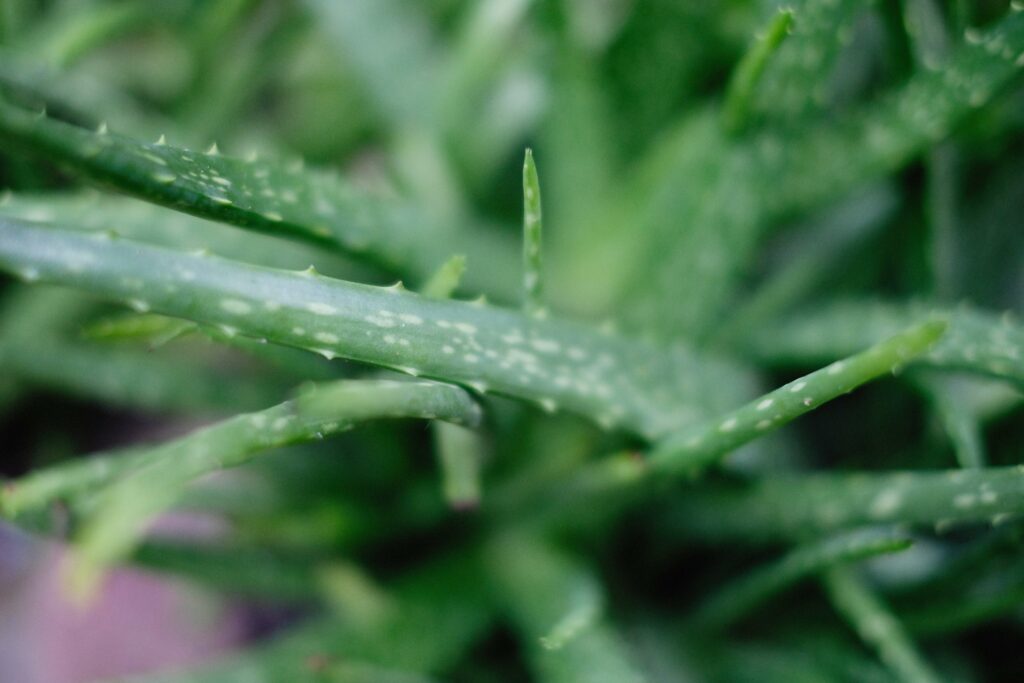Atopic dermatitis, more commonly known as eczema, is a condition that causes patches of skin to become dry, rough, itchy, and inflamed. According to the National Eczema Association, around 31.6 million people in the United States suffer from some form of eczema.
Eczema is caused by different environmental and genetic factors. Other psychological factors, such as stress, can also trigger a flare-up. The exact cause and range of symptoms differ from person to person, which is also why every treatment plan needs to be tailored to the needs of the specific individual. Depending on the severity of the symptoms, possible treatments may include prescription medication to natural alternative remedies.
Aloe vera, in particular, is a popular natural remedy for eczema, thanks to its moisturizing and soothing effects. But is it really effective in relieving the symptoms of eczema? Read on to find out.
What Are the Benefits of Using Aloe Vera for Eczema?
Historically, people have used aloe vera to treat and manage a variety of skin problems and disorders, including cuts, burns, and rashes. However, although you’ll definitely find a sea of individual success stories and anecdotal evidence on the effectiveness of aloe vera for eczema, the research is still lacking.
There haven’t been a lot of studies that can conclusively prove that aloe vera can significantly benefit people who are suffering from eczema. Nevertheless, aloe vera does contain anti-inflammatory, anti-fungal, anti-bacterial, and antioxidant properties that may help relieve inflamed skin and other eczema symptoms.
Here are some of the potential benefits of using aloe vera to help treat eczema:
- Moisturize the skin: Aloe vera contains zinc, amino acids, and mucopolysaccharides that boost the skin’s moisture retention. When your skin is well-moisturized, you can considerably reduce the tight and itchy feeling associated with eczema flare-ups.
- Enhance the effectiveness of hydrocortisone: According to a study published in the Journal of the American Podiatric Medical Association, using aloe vera with hydrocortisone may enhance the absorption of the latter into the skin. This means that these two treatment options together may be more effective than using just one of them alone.
- Prevent secondary infection: A 2012 study evaluated the antimicrobial efficacy of aloe vera and concluded that it has effective decontaminating properties. These properties can help prevent secondary infections due to broken, irritated skin, which is often characteristic of eczema. Aloe vera also contains two hormones, called gibberellins and auxin, which help accelerate wound healing.
- Relieve itching: Aloe vera’s anti-inflammatory properties may help calm irritated skin and relieve the intense itching that comes with eczema flare-ups.
Although there’s very little research to confirm that aloe vera will work as an eczema treatment, there’s no harm in giving it a try. After all, with eczema, people try to find relief where they can.
How to Use Aloe Vera to Treat Eczema
Follow these steps if you’d like to try using aloe vera to address eczema symptoms:
- Some people may find that using aloe vera can exacerbate their symptoms. Make sure you’re not allergic by performing a patch test. Rub aloe vera gel onto a small area of your skin and leave it on for 24 hours. If you start to develop swelling, hives, or any other allergic reaction, it’s best to explore other options.
- If you’re using a store-bought aloe vera product, check the label to make sure it doesn’t contain alcohol, fragrance, or preservatives. These ingredients can cause allergic reactions and further inflammation.
- Lock in moisture by applying aloe vera within 3 minutes of getting out of the shower or bath.
- Spread the gel directly onto the affected area. You can apply it multiple times throughout the day.
- If you’re suffering from severe symptoms, consider using a wet wrap. Soak a piece of cloth in warm water. Wring it out, apply aloe vera gel to the affected area, then put the damp cloth on your skin. Wrap it up with dry cloth strips. Leave the wrap on overnight.
- If your symptoms get worse instead of better, see a dermatologist as soon as possible.
Want to Learn More about Using Aloe Vera for Eczema? Contact Us Now
Are you still looking for more information about using aloe vera as an eczema treatment? We’re happy to help. Our team at Aloe Labs has years of experience in producing organic, high-quality aloe vera products that adhere to strict food safety standards. Contact us today to learn more.

